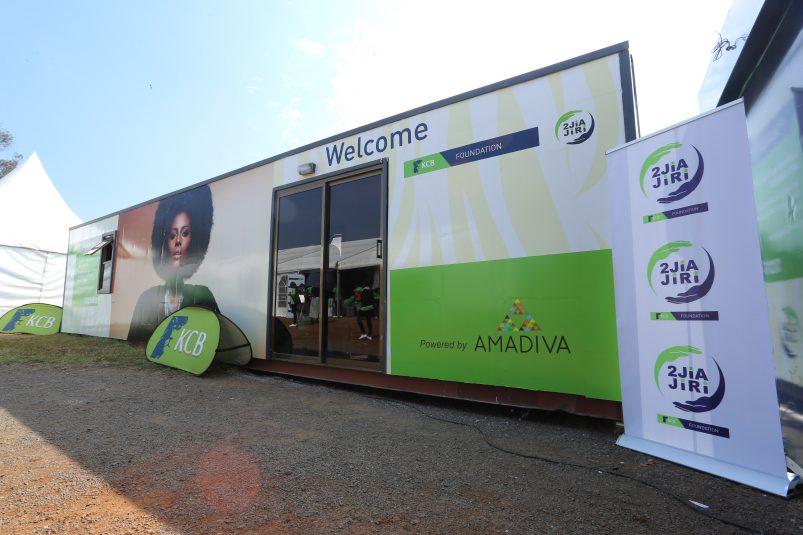Three hundred and sixteen beneficiaries will also receive business development services to hand-hold them into developing thriving enterprises through the franchise container model.
The KCB Foundation has launched a revolutionary approach to business premises hosting for the beauty and personal care professionals through a franchise container model. The ‘franchise container model’ is a modified shipping container that has been retrofitted to host a beauty salon.
The container will act as an incubation hub for students who have completed hair and personal care courses where they can perfect their professional skills even as they prepare to go into business for themselves.
The Salon Suites concept also known as booth rentals, is one of the fastest growing segments in the hair and beauty industry and brings a different approach to the industry. Under this, four beauty graduates can join hands and operate a 40- foot container that is equipped with four workstations. The joint venture model takes into account the graduates’ minimal or lack of capital and assists them to meet the operational cost of running the salon container. This business model has a co-working style and provides a platform to incubate hair and beauty beneficiaries until they are ready to take up their own containers.

“The beauty of the concept is that it takes into account issues of space as well as mobility as the container can be moved from place to place depending on business performance and owner preferences. Additionally, the fittings are never disentangled as they are moved inside the container, hence guaranteeing their safety,” said KCB Foundation Executive Director Jane Mwangi.
Owners of the containers can assist their tenants to place them at vantage points for instance in learning institutions, public parking areas, church compounds or at market centres.
KCB Foundation is piloting this concept through its 2Jiajiri programme, a transformative skills development and wealth creation programme that seeks to develop a new cadre of youthful entrepreneurs in the informal sector to ease the country’s unemployment crisis. KCB Foundation will provide business development services to hand-hold the 2Jiajiri beneficiaries into developing thriving enterprises through this model. This model is ideal for those who have dreams of being their own boss and in control of their own money. It provides the entrepreneurs with a platform to become independent, decorate their own space and increase profits. It is encouraging to note that stylists are joining the salon suites revolution as they seek more control of their businesses.
The Foundation has so far sponsored 882 hair and beauty beneficiaries since last year out of the over 12,000 recipients across the country and in various sectors. Upon graduation, the beneficiaries join the KCB Foundation incubation process as they walk through the journey of establishing their businesses. The Foundation currently partners with leading beauty colleges and salons in Kenya including Ashleys, Azizi and Amadiva among others.





